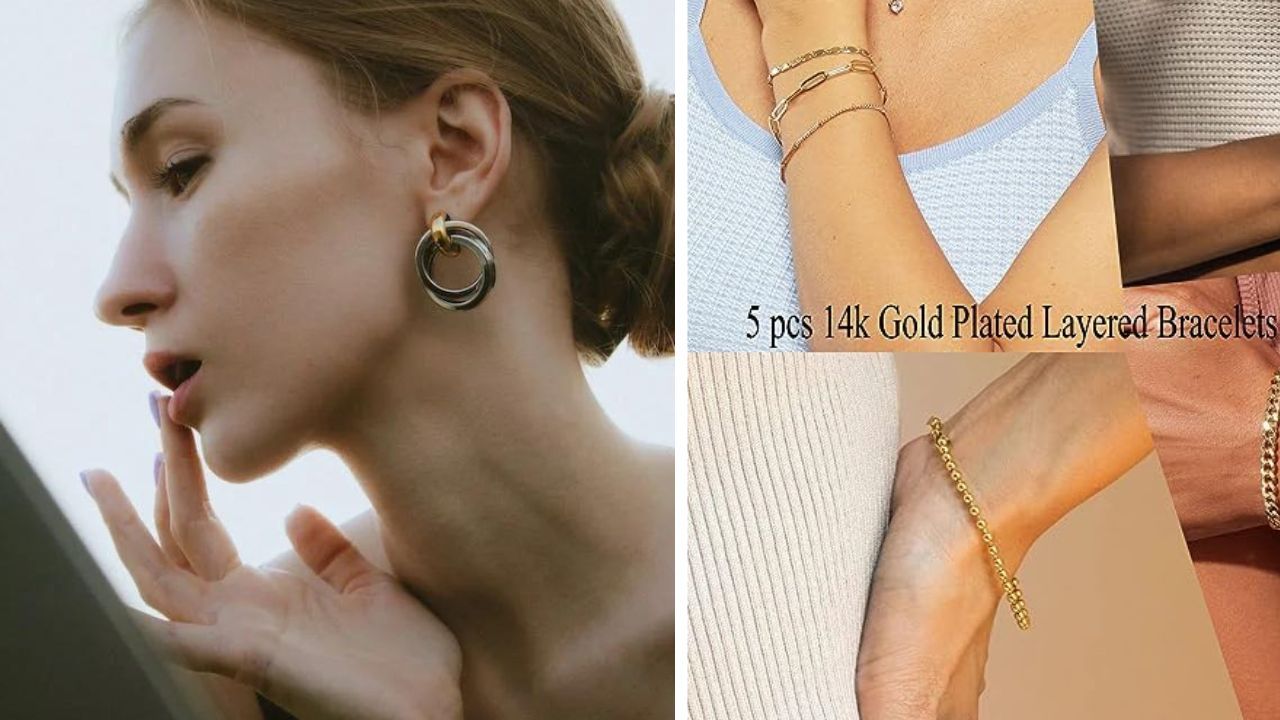Unveiling the Truth About Non-Tarnish Jewelry and Skin Irritation
While non-tarnish jewelry holds the promise of enduring radiance; the importance of an informed approach ensures that the style is accompanied by comfort.Read to see!

When it comes to accessorizing, jewelry holds the power to transform an outfit and express one's personal style. But what if your dazzling non-tarnish jewelry isn't as skin-friendly as it appears?
In this blog, we're delving into the intriguing world of non-tarnish jewelry to uncover whether it can lead to skin irritation. So, before you adorn that stunning piece, let's get to the bottom of this potential concern.
The Allure of Non-Tarnish Jewelry
Non-tarnish jewelry has been a blessing for those who want to enjoy the gleam and charm of their accessories without the perpetual battle against oxidation. These pieces are typically coated with materials such as rhodium or a clear lacquer to protect them from tarnishing, keeping them lustrous and vibrant for a longer period. This low-maintenance characteristic has won the hearts of many jewelry enthusiasts, but what about its impact on our skin?
The Connection Between Non-Tarnish Jewelry and Skin Irritation
The big question on everyone's mind: can non-tarnish jewelry cause skin irritation? The answer, unfortunately, isn't a straightforward "yes" or "no." While non-tarnish jewelry is generally designed to be hypoallergenic and skin-friendly, some individuals might still experience irritation due to a variety of factors.
1. Nickel Content: Nickel, a common allergen, can sometimes be present in base metals beneath the non-tarnish coating. Individuals with nickel allergies could potentially experience skin irritation when wearing such jewelry. It's essential to ensure the jewelry is labeled as nickel-free if you have a known sensitivity.
2. Coating Quality: The quality of the non-tarnish coating matters. Cheaper jewelry may have coatings that wear off over time, exposing the base metal and potentially causing skin reactions. Opting for high-quality, well-coated jewelry can minimize this risk.
3. Personal Sensitivity: Just as with any jewelry, personal sensitivity plays a crucial role. Factors such as skin type, humidity, and individual allergies can all contribute to whether non-tarnish jewelry triggers any skin irritation.
Prevention and Precautions
1. Choose Quality: Investing in well-crafted, high-quality non-tarnish jewelry from reputable sources can significantly reduce the likelihood of skin irritation.
2. Read Labels: Always check for nickel-free certifications and other relevant information before purchasing. This can be especially important for individuals with known metal allergies.
3. Trial Period: If you're uncertain about how your skin will react, consider wearing the jewelry for short periods initially. This can help you gauge whether any irritation occurs.
4. Keep it Clean: Regular cleaning of your non-tarnish jewelry can prevent the buildup of dirt and sweat, reducing the risk of skin irritation.
Conclusion
Non-tarnish jewelry has revolutionized the way we wear and enjoy accessories. While the majority of non-tarnish pieces are designed to be skin-friendly, there's still a chance that individuals with specific sensitivities might experience irritation. So always try to choose quality non-tarnish jewelry; stay informed about the materials used; and pay attention to your skin's response.
So when you are ready to purchase your beautiful non-tarnish jewelry click the button below to see what we have selected just for you so that you can confidently rock your non-tarnish jewelry without worrying about unwanted reactions!

